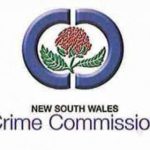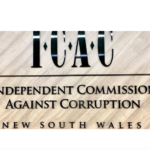A History of the New South Wales Crime Commission

The New South Wales Crime Commission Act 1985 enabled the establishment in the following year of a law enforcement agency with extraordinary investigative powers and little oversight.
The Act was superseded by the Crime Commission Act of 2012, whose stated objective was “to prevent, disrupt and reduce the incidence of organised and other serious crime” in New South Wales.
But let’s take a step back and look at the circumstances in which the Crime Commission was established, as well as explore its controversial history.
It all started at ‘settlement’
New South Wales commenced its existence as a penal colony in 1788 and at that time was comprised of Queensland, Victoria, Tasmania and South Australia.
In addition to being called the penal colony of NSW, it had a much more attractive name which was crown colony of NSW.
1823 saw the crown colony gain a degree of independence by virtue of the NSW Act, which allowed it to have a government of sorts and just over 30 years later it established its own constitution and in essence became self-governed.
Self-government commenced in 1855, when the constitutions Act was given royal assent which saw the establishment, by way of election, of an upper and lower house, and the legislative council and assembly. There was only one more thing to do and that was to elect the prime minister of NSW.
And so it happened, as Stuart Donaldson was elected and took office in August 1856, lasting only 80 days, followed by Charles Cowper, who lasted just 37 days.
Henry Parker was next and lasted 339 days and the premier position was up and running, with Charles Cowper coming back and lasting 2 years and 49 days.
Sir Charles, as he became, went on to be premier of NSW on 5 occasions between 1856 and 1870.
Of course, the colony of NSW, became the state of NSW in 1901.
What’s in a name
Australia named new Holland by Dutch navigators in the 17th century, became Australia by virtue of British explorer, Matthew Flinders who described it as such, with then NSW governor, Lachlan Macquarie informing Britain that the new land was now called Australia.
However, this name Australia was first mentioned as such in 1545, when being described as the southern land mass, though this included all the land mass, not only Australia.
Time for a Crime Commission
Whilst the first court of law sat in 1788, it was early days in crime in Australia, however, the first charter of justice for NSW was established in relation to a court of civil jurisdiction, to sit alongside the court of criminal judicature.
Early days and still no crime commission, as Australia was initially only dealing with the transported convicts and their marine guards. But it was about to change.
Of course, it wouldn’t be until 1901 for Australia to begin its own journey of an independent legal system, created by the Australian constitution.
NSW police force was the first civilian police force, called the night watch, formed initially by then governor, Arthur Phillip in 1789 to keep watch over Sydney town and was comprised of model convicts.
Crime was increasing, leading to the night watch being replaced by the Sydney foot police in 1790 (later to become simply Sydney police) when all NSW police joined forces in 1862, under the leadership of a solicitor who became the first inspector general of police, William Spain.
Due to the British parliament vetoing the decision to amalgamate all aspects of police, some retained their own entity.
This included the rowboat force and military mounted police (which were formed in 1825), with the rowboat police also seconded from the ranks of convicts.
NSW mounted police of today were the civilian mounted police, also known as the mounted road patrol, which took over from the military horsemen in 1850.
Other police forces which existed were the border force and the mounted native police, which the NSW government formed in 1848 and which was comprised of Aboriginal troopers, under the command of European officers.
Serious crimes were being committed, such as fights to the death between the convicts and the military in 1804 for example, at what is now castle hill (formerly vinegar hill on the outskirts of Sydney) and battles between the European settlers and Aboriginal Australians.
Add to this, the crime of bush ranging in the 1830s and 1860s, including massacres of Aboriginals such as at Myall creek in 1838, with the ultimate hanging of the European murderers and you see where this is going. Crime in Australia was increasing.
In 1835 the Supreme Court of New South Wales decried the increase in murders and robberies.
NSW police force was established in Sydney’s Phillip street after the passing of the police regulation act in 1862, with the force divided into 4 categories, namely the foot police, detective force, water police and mounted police.
Then 1868 saw Henry James O’Farrell shoot and wound the duke of Edinburgh, Prince Alfred, queen Victoria’s son at Clontarf, resulting in NSW enacting the first treason felony act 1868.
Punishment
Floggings, banishment to islands such as cockatoo island off the coast of Sydney, imprisonment and capital retribution were all forms of consequences.
Australian law in the late 19th century, allowed capital punishment to continue for certain crimes, whilst Britain had ceased to kill prisoners for crimes including attempted murder , robbery under arms (bush ranging) and rape.
The 1840s saw highly political movements for reform on capital punishment, however successive NSW governments, unlike some other colonies, refused to ban capital punishment entirely until 1955.
Precursor to the NSW Crime Commission
After the brutal slaying of 4 special constables by bushrangers, the Campbell commission of inquiry into the state of crime was established in 1867.
The commission found that there were inadequacies within the police leadership and quality of some officers which led to the murder of the 4 officers and made many recommendations for implementation.
The commission also found that the judiciary in the particular town, Braidwood, NSW where it was evident that there was judicial corruption in relation to at least one magistrate.
Corruption also existed between police and the bushrangers.
One recommendation from the commission of inquiry involved in ensuring bail conditions were increased and that bail only be given in exceptional circumstances.
Fast forward 120 years
1986 saw the formation of the NSW Crime Commission (NSWCC), a statutory corporation of the stated government enabled by the Crime Commission Act of 1985, which was superseded by the Crime Commission Act 2012; basically, to implement further recommendations of the special commission of inquiry into the NSW Crime Commission.
The special commission, initially constituted under the state drug crime commission, enabled by the state drug Crime Commission act 1985, was led by former supreme court justice, David Patten and found no misconduct or impropriety, apart from one employee, whose arrest and imprisonment was attributed to the NSW Crime Commission.
The special commission did find though that sweeping changes had to be made to the NSWCC which include:
- Governance structure,
- Legislation,
- Management of informants,
- Complaint handling,
- Auditing, and
- Oversight.
120 years later and a senior police figure still involved at the upper echelons of organised crime.
Absolute power corrupts absolutely
Assistant director and chief investigator of the NSW Crime Commission, Mark Standen, found guilty of conspiring to import 300 kilograms of pseudoephedrine from Pakistan, which is used to manufacture methamphetamine, aka ice (crystal meth).
In coordinated raids in several countries, 12 suspects were arrested in Holland, (including two of the cartels godfathers, Peter Dekker and Ron Haklander), one in Bangkok, Thailand and others in Australia.
Had Standen and his co-accused pulled it off, it would have been worth in excess of 60 million Australian dollars.
The arrests came by way of a transnational police operation called octans, involving the Netherlands, Pakistan, Britain, United Arab Emirates, America and Portugal, in the main.
This was an Australian Federal police (AFP) led operation which took about 9 years and ended with one of the largest international Dutch drug cartels known as the Breda group going out of business.
Standen had access to the most sensitive intelligence in relation to organised crime at the upper echelons, concerning major players in every facet of criminality, including human trafficking, money laundering, arms dealing, drug importation and cybercrime, in many countries in the world.
Previous criminality concerning the senior investigator
Significant anecdotal evidence suggests that Standen has been crooked for many years, with authorities having been told of allegations he was involved in a variety of misconduct, including drugs, bribes and threats, with the threats not only involving criminals, but decent, law-abiding people also.
In 1980, he faced charges under the public service act, when employed by the customs narcotics bureau for allegedly flushing drugs seized on a raid the previous day down a toilet.
Fortune appeared to be on his side on that occasion and he went off to find a position with the Australia federal police.
2003 saw him involved in witness tampering, when a witness in a matter concerning an international drug lord and money launderer declined to give evidence, due to pressure exerted on her by Standen, by virtue of an intimated threat to harm her children.
Another police informant told a similar story of threats made against his children.
James Henry Kinch, an Irishman who made England his base for most of his life, was a transnational drug smuggler and money launderer, whom Standen had a relationship with as a partner in crime, which now on the evidence presented to the court during his 5 months trial, was one of his modus operandi, in which he seduced those he had arrested, with a no gaol sales pitch.
Kinch was ultimately convicted for conspiracy to import about 6 million ecstasy pills weighing approximately 1.1 tonnes and laundering 200 million Australian dollars via shady money exchange businesses in Sydney and Melbourne.
Successes of the organisation
The honourable Anthony Whealy KC, Chairperson of the NSWCC Management Committee presented the NSWCC annual report for the period 2021-2022 to the deputy premier:
During this period, 107 persons were arrested and charged with a total of 722 exceptionally serious offences.
In relation to property proceeds of crime confiscation orders, this amounts to $30,142, 659, with other confiscation orders totalling $62,526,506.
NSWCC consists of a criminal investigations division (CID), financial investigations division (FID), corporate & enterprise service division (CES) and a legal services team.
The first federal law to deal with serious offences came about by virtue of the Crimes Act 1914 (Cth), whilst NSW had the Crimes Act 1900 (NSW).
Australian Crime Commission
The Australian Crime Commission Act 2002 (Cth) saw the establishment of the national crime commission in 2003, which was headed by NSW police officer, Alistair Milroy, essentially in order to bolster Australia’s counter to what appeared to be a much more organised form of crime.
Contacted by a Crime Commission?
If you have been contacted by the New South Wales or Australian Crime Commission, it is vital to engage the services of specialist criminal lawyers with a thorough knowledge of the powers the organisation can bring to bear, including its coercive powers, in order to protect your interests and avoid putting yourself in position where adverse consequences may flow.
The team at Sydney Criminal Lawyers has decades of experience representing clients in both bodies, and will accurately advise you of how to best deal with the organisation, protect your interests and fight to ensure you come out of the process without being negatively affected.
So call us on (02) 9261 8881 and let us protect your interests when it comes to dealing with a crime commission investigation.






